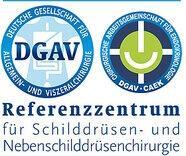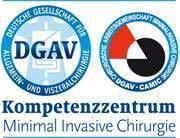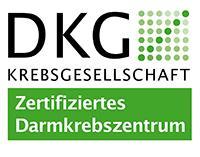All types of malignant thyroid tumors are successfully treated abroad. Doctors use surgery, radiation, hormonal, targeted, chemotherapy, ablation, chemoembolization, and other methods, depending on the stage and histological type of cancer.
Thyroid cancer develops against the background of thyroiditis, goited, radiation exposure, etc.
Stage 4 thyroid cancer is cancer that spreads to lymph nodes and distant organs.
Thyroid cancer treatment includes surgery, radioiodine therapy, radiation therapy, targeted and chemotherapy.
Cost of treatment with thyroidectomy starts at €5,480. Price for radioiodine therapy starts at €3,985. Cost of chemotherapy starts at €2,104.
Best hospitals in Europe are:
- University Hospital Rechts der Isar Munich
- Helios Hospital Berlin-Buch
- University Hospital of Ludwig Maximilian University of Munich
- University Hospital Frankfurt am Main
- Clinic of Advanced Biological Medicine Frankfurt am Main
Surgery
The main treatment option for thyroid cancer at stage 1-3 and at the advanced cancer stages is surgery. The treatment of the disease usually begins with surgery. Intervention options are described below.
Lobectomy is the removal of a lobe of the thyroid gland. The organ consists of two parts. There is also an isthmus between them. The doctor removes only the lobe in which a malignant tumor is detected. The isthmus is also subject to resection. This operation for thyroid cancer is used infrequently. The specialists resort to it in the following cases:
- Thyroid cancer is non-aggressive (papillary, follicular type).
- The tumor is small.
- There are no signs of thyroid cancer extension outside the organ.
In addition, lobectomy is used in some cases as a diagnostic operation. The primary method of confirming the diagnosis is a biopsy. According to its results, it is sometimes impossible to give an unambiguous answer whether it is cancer or not. In such cases, doctors have to remove part of the organ to examine it in the laboratory. If thyroid cancer is diagnosed, then the scope of surgical intervention is likely to be expanded. Doctors will perform a revision surgery to remove the entire thyroid gland.
Lobectomy as a treatment method has an obvious advantage over thyroidectomy (radical removal of the thyroid gland). Since part of the organ is preserved, the patient produces thyroid hormones. This means that he will not have to receive thyroid hormone replacement therapy for the rest of his life.
Thyroidectomy is the main treatment option for the disease. Most patients prefer this operation. The Surgery involves the total removal of the thyroid gland. The procedure is performed through an incision a few centimeters long on the front of the neck.
After a thyroidectomy, the patient must receive lifelong hormonal therapy, since the production of the patient's hormones stops. However, disease control is improved. Doctors will be able to detect a recurrence in time if it suddenly happens. Radionuclide diagnostics with radioactive iodine and a blood count for thyroglobulin are used for monitoring.
Neck lymph node dissection is an optional stage of the operation. In papillary and follicular cancer, the neck lymph nodes are removed only if signs of metastasis are detected. However, in more aggressive medullary or anaplastic cancers, lymph nodes are often removed even if there is no evidence of metastasis.
The scope of lymph node dissection depends on the stage of the disease and the histological type of thyroid cancer. In differentiated tumors after surgery, radioactive iodine therapy is usually performed. It is highly likely to destroy all metastases. Therefore, only the largest lymph nodes, which have increased due to the growth of metastatic tumors, are subject to removal. However, lymph node dissection is often performed at a higher scope in anaplastic or medullary cancer. This is because the cells of these tumors cannot accumulate radioactive iodine.
The surgical removal of the thyroid gland is a relatively low traumatic operation. The patient does not usually have to stay in the hospital for a long time. He can return home the very next day.
Possible complications:
- Hoarseness is usually temporary, and if the recurrent nerve is damaged, it can become permanent.
- Neck hematoma.
- Infectious complications.
To ensure safe treatment, one should carefully choose the clinic and surgeon. You will be treated by the best specialists in specialized Cancer Centers abroad, so the risk of complications is minimal.
The parathyroid glands are often removed along with the thyroid gland. These are small organs located behind the thyroid gland. As a rule, there are four of them. The parathyroid glands also produce hormones. They regulate the level of calcium in the blood. Therefore, a frequent consequence of the operation is decreased calcium levels, which can cause seizures, numbness and tingling in the legs and arms. These complications can be treated with drugs.
Radioiodine therapy
More than 90% of thyroid cancer cases are differentiated tumors. They are sensitive to radioiodine therapy. The essence of the treatment method: radioactive iodine is injected into the patient's body. It is taken up by all thyroid cells, both healthy and malignant, and no matter where they are located. As a result, radiation destroys the remnant of the primary tumor, metastases in regional lymph nodes and distant metastases.
Radioactive iodine therapy has been used in medicine for over 80 years. Its results and safety are constantly improving. Treatment in Europe is carried out according to the guidelines of the European Association of Nuclear Medicine (EANM) and the Society of Nuclear Medicine and Molecular Imaging (SNMMI).
The goals of radioiodine therapy vary. Basically, there are three of them:
- Destruction of residual thyroid tissue by radiation – presumably benign, but a potential source of cancer recurrence.
- Adjuvant (postoperative) treatment of a suspected but undiagnosed residual tumor.
- Treatment of a known disease: residual, recurrent tumor or metastases.
An accurate examination is required to properly select patients for radioiodine therapy and determine the optimal therapy regimen. The type of cancer, the status of the disease, the risk of recurrence and progression, and the risk of side effects are taken into account. The therapy regimen is developed by an interdisciplinary team. It includes a surgeon, an oncologist, a pathologist, a specialist in nuclear medicine (radionuclide therapy and radionuclide diagnostics), a radiation therapist, a radiologist, a chemotherapist and an endocrinologist. The wishes of the patient are taken into account.
To determine the indications for radioiodine therapy, the specialists use:
- Neck ultrasound.
- Radioiodine diagnostics.
- Determination of the level of oncomarkers in the blood (serum thyroglobulin, antibodies to thyroglobulin).
- Study of surgical material.
According to the examination results, the patient is assigned to one of the risk groups: low, intermediate or high.
The risk of cancer recurrence or progression is considered low if the entire tumor is removed, there are no distant metastases on whole-body scintigraphy, and there is no invasion of the cancer into the blood vessels. Up to 5 regional metastases are allowed if their size does not exceed 2 mm (micrometastases).
The risk of cancer recurrence is considered intermediate if metastases in regional lymph nodes up to 3 cm are detected, their number is more than 5, the tumor is more than 4 cm, penetrated into vessels, cancer cells outside the thyroid gland are detected, radioactive iodine accumulating tumor foci are found, BRAF V600E mutation is detected.
The risk of recurrence is considered high in residual tumor, TERT and BRAF mutations, the presence of metastases larger than 3 cm, extension of thyroid cancer outside the organ, high thyroglobulin levels, and detection of distant metastases.
In low risk, radioiodine therapy is not performed. Intermediate or high-risk patients require radioactive iodine therapy after surgery.
Local treatment of radio-refractory cancer
In some patients, thyroid cancer is considered radio-refractory, namely, resistant to radioiodine therapy. It is deemed to be so if:
- Tumor foci do not accumulate radioactive iodine.
- Not all tumor foci accumulate iodine.
- Metastases progress despite signs of iodine accumulation.
- Metastases progress when using a dose of more than 22,2 GBq (600 mCi).
Radioiodine resistance occurs initially or during treatment in about 10% of patients. The risk of radioiodine resistance among patients with distant metastases is higher, exceeding 30%. The development of this condition worsens the prognosis of pathology. Ten-year survival of such patients is about 10%.
In the development of radioiodine resistance, other treatment options are used instead of radioactive iodine:
Surgery is most often used for local or regional recurrences. The tumor usually re-grows from the lymph nodes. Therefore, central or lateral neck dissection is often used for treatment. If it has already been performed earlier, at the stage of primary surgical treatment of cancer, then doctors limit themselves to removing only individual tumor foci that are detected during preoperative diagnostics and surgery.
Radiation therapy is the main treatment option for metastases to the bone and central nervous system. It is successfully used in combination with surgery to remove recurrent neck tumors. Progressive irradiation options are used abroad to safely deliver high doses of radiation to the tumor.
Ablation is the destruction of a recurrent tumor by various types of energies or chemicals. For example, ethanol ablation, radiofrequency, microwave. The most commonly used is radio-frequency one. Doctors insert a probe into the tumor, heat the tissues, and the tissues of the neoplasm are destroyed.
Chemoembolization is a minimally invasive procedure performed through an incision in the leg from inside the blood vessels. The doctor reaches the neck vessels through the femoral artery. He examines the arterial bed with the help of a contrast agent and X-rays. Drug-saturated microspheres, tiny balls containing chemotherapy drugs, are injected into the superior and inferior thyroid arteries. As a result, the tumor dies due to two mechanisms: the blockage of blood flow deprives it of oxygen, and the release of drugs from emboli destroys the remaining cancer cells within a few weeks.
Drug therapy
In the advanced stages of cancer, various options for drug therapy of thyroid cancer are resorted to.
Hormone therapy is carried out for two purposes. The first one is to compensate for the deficiency of hormones caused by the removal of the thyroid gland. With the help of drugs, the normal course of metabolic processes in the body is ensured. The second goal is to suppress the growth of tumors. Such therapy is called suppressive. The mechanism of its action is realized through the pituitary hormone TSH (thyroid-stimulating hormone). It stimulates the function of the thyroid gland and the growth of its tissue, including tumorous ones. The lower the TSH level, the slower the tumor grows.
Since TSH is a hormone that regulates thyroid function, the level of its secretion is regulated by a feedback mechanism. The more thyroxine in the blood, the less the pituitary gland produces TSH. If the amount of thyroid hormones decreases, then the pituitary gland tries to stimulate the organ and produces more TSH. Accordingly, to reduce TSH, the concentration of thyroid hormones in the blood must be high. Therefore, doctors use high doses of hormonal drugs to suppress TSH production and reduce the growth rate of the neoplasm.
Chemotherapy is rarely used and has low efficacy. In addition, the disease can be cured without it in most cases. Chemotherapy is more often used for poorly differentiated types of cancer that are not sensitive to radioactive iodine. Chemotherapy can be combined with external beam irradiation.
Target therapy is an advanced and most effective drug therapy option, often used in advanced stages of the disease. Doctors perform diagnostics to determine mutations in the tumor cells. Depending on the detected changes in the genes, drugs that can reduce the size of the neoplasm and inhibit tumor growth for a long time are selected.
In countries with progressive medicine, drugs of the following groups are used:
- Multikinase inhibitors work by suppressing the formation of tumor vessels and blocking cell division. They are used for differentiated types of neoplasms, if radioiodine therapy does not work, as well as in undifferentiated types of cancer.
- RET inhibitors are used in similar cases. They are suitable only for patients who have RET gene mutations.
- TRK inhibitors are used in the presence of NTRK genes. They are turned off, after which the TRK protein, which stimulates the division of cancer cells, is no longer produced. Drugs are used in the advanced stages of the disease if radioactive iodine therapy does not help.
- BRAF and MEK inhibitors are prescribed for anaplastic cancer, which has changes in the BRAF genes. These tumors produce proteins that stimulate the division of cancer cells. The treatment is prescribed in the advanced stages and in cases of incomplete tumor removal during surgery.
Immunotherapy is currently in clinical trials. Doctors test whether immune checkpoint inhibitors can help patients with advanced thyroid cancer. These drugs stimulate antitumor immunity. They reduce the ability of the neoplasm to evade the immune response.
Treatment in Europe with Booking Health
To undergo thyroid cancer treatment in one of the European hospitals, you are welcome to use the Booking Health services. On our website, you can check the cost of treatment and compare prices in different clinics to book a medical care program at a favorable price. Treatment in Europe will be easier and faster for you, and the cost of treatment will be decreased.
Please leave a request on the Booking Health website. Our specialist will contact you and hold a consultation on the treatment in Europe. Booking Health will fully organize your trip to another country. We will provide the following benefits for you:
- We will select the best European hospital whose doctors specialize in the treatment of thyroid cancer.
- We will help you overcome the language barrier and establish contact with the doctor in the European hospital.
- We will reduce the waiting period for the medical care program. You will receive treatment on the most suitable dates.
- We will reduce the prices. The cost of treatment in Europe will be reduced due to the lack of overpricing and additional coefficients for foreign patients.
- We will solve any organizational issues: we will prepare documents, meet you abroad and take you to the hospital, book a hotel, and provide an interpreter.
- We will prepare the medical care program and translate medical documents. You will not have to undergo previously performed diagnostic procedures.
- We will help you keep in touch with doctors after treatment in Europe.
- We will organize additional examinations and treatment in a European hospital.
- We will buy medicines in another country and forward them to your native country.
The world's leading doctors will take care of your health. The Booking Health specialists will help you reduce the cost of treatment, organize your trip to a European hospital, and you can fully focus on restoring your health.
Authors:
The article was edited by medical experts, board certified doctors Dr. Nadezhda Ivanisova and Dr. Sergey Pashchenko. For the treatment of the conditions referred to in the article, you must consult a doctor; the information in the article is not intended for self-medication!
Our editorial policy, which details our commitment to accuracy and transparency, is available here. Click this link to review our policies.
Sources:
National Cancer Institute
American Thyroid Association
Cancer. Net
















